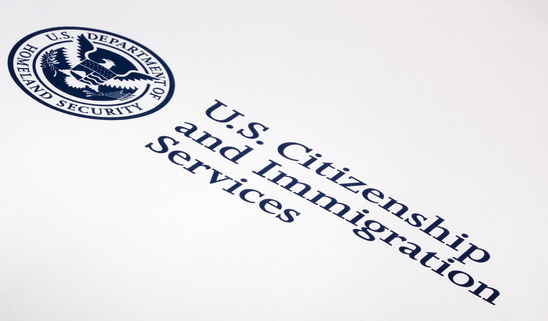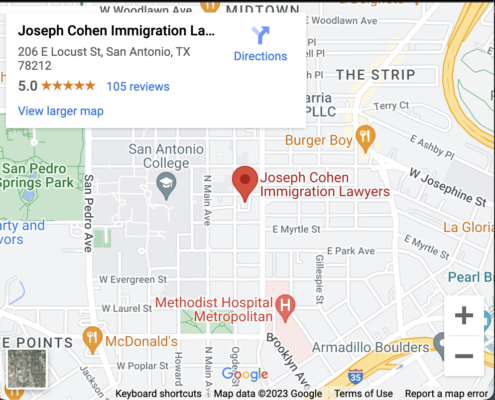What is Voluntary Departure? Deportation Lawyer in San Antonio, Texas Discusses
In some cases, individuals choose voluntary departure from the U.S. to avoid receiving a deportation order. In other instances, individuals may be permitted to choose voluntary departure at any stage of their immigration case. While there are certain situations where a person may want to choose voluntary departure, it is important to understand that immigration officers, when detaining individuals, may sometimes offer individuals who have been detained the option of voluntary departure. Those who may not fully understand their rights or their immigration situation may sometimes choose voluntary departure to avoid detention. What they don’t realize, is that choosing voluntary departure means that they may be waiving your right to a hearing, a court date, and may be giving up their right to defend themselves and stay in the country. Voluntary departure is not the best option in all cases, and in some cases, it can even harm a person’s case. If you are facing an encounter with immigration officers in which you are being asked to voluntarily leave the country or to sign documents, ask to speak to your immigration lawyer first. J. Joseph Cohen is a deportation lawyer in San Antonio, Texas who may be able to help you.
Individuals who have been detained by ICE may be given the option to voluntary depart the U.S. Before choosing voluntary departure, however, individuals should always consult with their immigration lawyer, like J. Joseph Cohen in San Antonio, Texas. Choosing voluntary departure is essentially “self-deporting” yourself from the U.S., which can still carry serious consequences. You may not be able to re-enter the country if you choose voluntary departure, even if you were never issued a deportation order.
Consequences of Formal Deportation
If you’ve been given the option of voluntary departure, in some cases, it can help you avoid an order of deportation being issued against you. Having a deportation order on your record can have serious consequences. You could be barred from returning to the U.S. for a period of time, which can vary from five years to life. If you try to re-enter the country after you have been removed on an order of deportation, you could face more serious charges and consequences for attempting an illegal re-entry into the U.S. You could also face unique challenges if you want to apply for a visa after you’ve been issued an order of deportation. Some individuals may choose to voluntary depart to avoid the issuance of a formal deportation order. However, leaving the U.S. voluntarily when you would otherwise have had the right to remain in the country, could also have serious consequences to your immigration or visa case. Individuals may want to consider whether they have exhausted all their other options before they voluntarily depart the U.S., and it may be wise to speak to a deportation lawyer before taking steps to leave voluntarily.
Before you sign any paperwork or agree to anything, if you have been detained or threatened with deportation by immigration officers, it is important to speak to an immigration lawyer first. J. Joseph Cohen is a deportation lawyer in San Antonio, Texas who can review your situation, help you understand your rights and options under the law, and help you understand the best course of action going forward. J. Joseph Cohen may be able to help you.
Are There Benefits to Voluntary Departure?
If you choose to leave the U.S. before immigration officers issue a deportation order, you could potentially avoid facing any bars to re-entering the U.S. Voluntary departure also may give you more time to get your affairs in order if you need to leave the U.S. For example, those with a deportation order may only have 30 days to leave the U.S., while those with a voluntary departure may have as long as 120 days to get their affairs in order. However, voluntary departure means that you could face challenges should you ever choose to try to immigrate to the U.S. later. Furthermore, you could still be denied entry at the U.S. border, at the discretion of immigration officials. Unlawful presence in the U.S. can still result in bars to re-entry at the border.
Before making the decision to self-deport or voluntarily depart the U.S., consider speaking to J. Joseph Cohen, a deportation lawyer in San Antonio, Texas today. Our firm can review your situation, help you understand your rights and options under the law, and help you map the next steps for your immigration case. Immigration law can be complex. If you have been detailed by border officials or ICE, you might be frightened, confused, and not know what to do next. You do not have to agree to self-deport or to a voluntary departure. Ask to speak to your immigration lawyer first.






